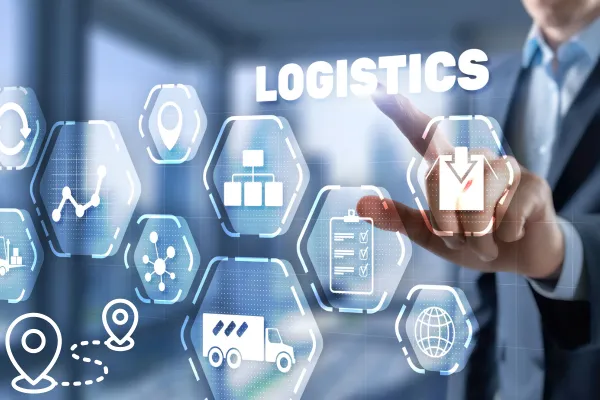
Spotlight on Healthcare: Innovations in Logistics
In the ever-evolving landscape of healthcare, logistics plays a pivotal role in ensuring that critical supplies and services reach their destinations promptly and securely. The integration of innovative logistics solutions is not just about improving efficiency; it’s about saving lives. From the latest advancements in technology to groundbreaking strategies in supply chain management, let's delve into how innovations in logistics are transforming the healthcare sector.
The Importance of Efficient Healthcare Logistics
Before exploring the innovations, it’s crucial to understand why efficient logistics is vital in healthcare. The healthcare supply chain is intricate, involving the coordination of pharmaceuticals, medical devices, and biological specimens. Any delay or mishandling can have dire consequences, affecting patient outcomes and overall public health. This critical dependency underscores the need for precision, reliability, and innovation in logistics.
1. The Rise of Digital Transformation
Digital Transformation in Healthcare Logistics
Digital transformation is revolutionizing healthcare logistics by enhancing visibility, improving communication, and streamlining operations. Here’s how:
Real-Time Tracking and Monitoring: Modern logistics companies use advanced tracking technologies, including GPS and IoT devices, to provide real-time updates on the location and condition of shipments. This transparency allows healthcare providers to monitor critical deliveries closely, ensuring that supplies are handled correctly and reach their destinations on time.
Blockchain Technology: Blockchain is being implemented to secure the supply chain by providing an immutable ledger of transactions. This ensures the authenticity and integrity of medical products, reducing the risk of counterfeit drugs and improving traceability from manufacturer to patient.
Big Data Analytics: Big data enables logistics providers to analyze vast amounts of information to predict demand, optimize routes, and improve inventory management. Predictive analytics helps anticipate needs and prevent shortages of essential medical supplies.
2. Automation and Robotics
Automation and Robotics in Healthcare Logistics
Automation and robotics are reducing human error and increasing efficiency in the healthcare supply chain. Here are key innovations:
Automated Warehouses: Automated systems, including robotic arms and conveyor belts, are used in warehouses to sort, pack, and dispatch medical supplies. These systems increase speed and accuracy, ensuring that the right products are sent to the right locations.
Drone Deliveries: Drones are being used to deliver medical supplies to remote or hard-to-reach areas. For example, during the COVID-19 pandemic, drones were deployed to deliver vaccines and PPE to isolated communities, ensuring timely access to essential resources.
Automated Guided Vehicles (AGVs): AGVs navigate through hospitals and warehouses, transporting supplies and reducing the need for human intervention. This innovation minimizes the risk of contamination and increases the efficiency of internal logistics.
3. Temperature-Controlled Logistics
Maintaining the Cold Chain in Healthcare Logistics
Temperature-sensitive products, such as vaccines and biologics, require strict temperature controls to maintain their efficacy. Innovations in cold chain logistics are crucial for preserving these products:
Advanced Refrigeration Technologies: State-of-the-art refrigeration systems ensure that products are kept at the optimal temperature throughout the supply chain. These technologies include smart refrigeration units that monitor and adjust temperatures in real-time.
Insulated Packaging: Innovative packaging solutions, such as phase change materials (PCMs) and vacuum-insulated panels, provide superior thermal protection. These materials maintain the required temperature for extended periods, even in extreme conditions.
Temperature Monitoring Devices: Digital temperature loggers and sensors are placed inside shipments to continuously monitor conditions. If a deviation occurs, alerts are sent to logistics managers, allowing for immediate corrective action.
4. Sustainable Logistics Practices
Sustainability in Healthcare Logistics
Sustainability is becoming a key focus in healthcare logistics, with innovations aimed at reducing the environmental impact of the supply chain:
Eco-Friendly Packaging: Companies are developing biodegradable and recyclable packaging materials to reduce waste. These sustainable options not only protect the environment but also comply with regulatory requirements.
Electric Vehicles (EVs): The use of EVs in medical deliveries is on the rise. These vehicles produce zero emissions, reducing the carbon footprint of logistics operations. Additionally, advancements in battery technology are extending the range and efficiency of EVs.
Optimized Routing: Using AI and machine learning, logistics providers can optimize delivery routes to reduce fuel consumption and emissions. These technologies consider traffic patterns, weather conditions, and other variables to plan the most efficient routes.
5. Personalized Medicine and Just-In-Time Delivery
Personalized Medicine and Logistics
The shift towards personalized medicine requires logistics solutions that are flexible and responsive:
Just-In-Time (JIT) Delivery: JIT logistics ensures that medical supplies are delivered exactly when needed, reducing inventory costs and minimizing waste. This approach is particularly important for personalized treatments that have short shelf lives.
Customized Logistics Solutions: As treatments become more tailored to individual patients, logistics providers are developing customized solutions to handle unique requirements. This includes specialized packaging, temperature controls, and expedited delivery services.
6. Enhanced Collaboration and Communication
Collaboration in Healthcare Logistics
Effective collaboration and communication are essential for seamless healthcare logistics:
Integrated Supply Chain Platforms: Digital platforms that integrate all stakeholders in the supply chain, from manufacturers to healthcare providers, are becoming more common. These platforms facilitate real-time communication, order tracking, and inventory management.
Telehealth and Remote Monitoring: Telehealth services and remote monitoring devices are improving patient care and reducing the need for frequent hospital visits. Logistics providers support these services by ensuring that necessary equipment and supplies are delivered efficiently.
Conclusion
Innovations in healthcare logistics are driving significant improvements in efficiency, reliability, and patient outcomes. From digital transformation and automation to sustainable practices and personalized medicine, these advancements are reshaping the healthcare supply chain. As technology continues to evolve, the potential for further innovations in healthcare logistics is immense, promising a future where medical supplies are delivered with unparalleled precision and speed. The ultimate goal remains clear: to enhance patient care and save lives through cutting-edge logistics solutions.